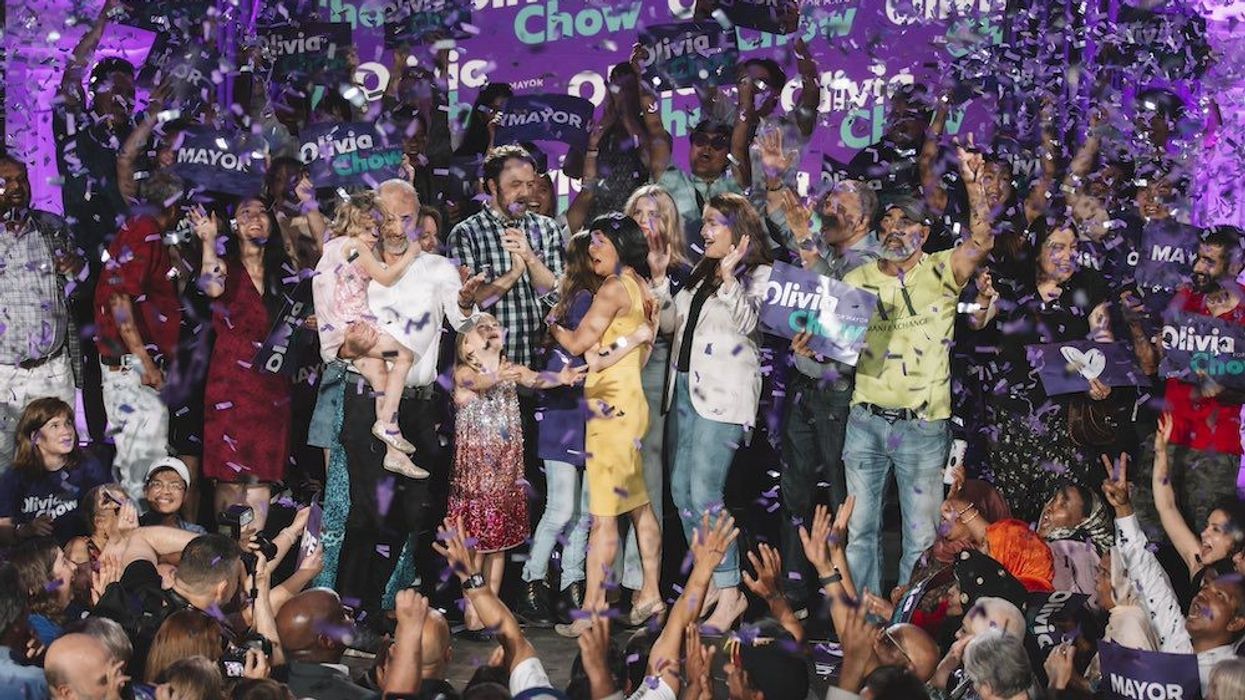If Olivia Chow was the big winner in Toronto’s mayoral by-election, Ontario Premier Doug Ford was the big loser. His candidate, former police chief Mark Saunders, came in a distant third, attracting only 62,000 votes -- a drop in the bucket in a city of three million.
Conventional wisdom throughout the seemingly endless campaign saw it as a “change election.” It most emphatically was. To begin with, it was triggered by the completely unexpected resignation of former mayor John Tory, who admitted to an affair with a staffer. Not only is a Toronto civic election without an incumbent relatively rare, in this case it created a huge opportunity for the city to chart a new course.
Indeed, the timing couldn’t have been more auspicious. After 12 years of right-wing austerity-obsessed mayors, Torontonians were clearly desperate for a leader who would end the city’s decline into disarray, discord and decay. This was a campaign that went beyond the usual bogeymen of crime, congestion and cost of living; the main issue was quality of life.
Wisely, Chow kept her platform deliberately vague, refusing to get caught up in squabbles about the exact amount of property tax increases, housing affordability or the location of new bike lanes. Those details can wait for another day. Instead she focused on more nebulous concerns about what it actually means to live in this city. Toronto has become a place where residents feel they have been abandoned by the institutions on which they rely. They worry that their city and its neighbourhoods are being strip-mined by corporate interests aided and abetted by their Queen’s Park enablers.
The City’s lack of control is evident in everything from Toronto’s looming $1B deficit to the drastic drop in public services and the sorry condition of local streets. Worst of all, perhaps, the astronomical cost of real estate means a buying a home of one’s own will remain forever out of reach for countless thousands of families.
Little wonder the state of mental health across Canada let alone Toronto has never seemed so low or the sense of alienation and dislocation so high.
In truth, these are issues that lie well beyond the City’s power to alleviate. But Olivia Chow’s victory is a clear signal to the conservative forces that have held sway in Toronto for more than a decade that Torontonians have had it with the Ford brothers’ knee-jerk anti-urbanism. The campaign of Saunders, his would-be city hall puppet, was an exercise in the sort of get-out-of-my-way pick-up-truck populism that has no place in the city. His bizarre focus on bike lanes was a civic embarrassment undone only by his miserable showing Monday night.
Regardless, Chow’s mayoralty won’t be easy. She has breathed life into 'Toronto the Progressive' after years of right-wing defeatism. But in many ways the deck is stacked against the city, which remains, lest we forget, a creature of the province.
Nevertheless, her ascendance has enormous political significance. Ford’s dismissal of yappy downtowners may win applause in small town Ontario, but the votes are in the city. His warning that under Chow, whom he called an “unmitigated disaster,” Toronto would be “toast” only makes him look weak, out of touch and increasingly irrelevant. The election was a reminder to the city and province that most voters are now quite happy to ignore him completely.
After years of trying to discredit “progressive” politicians, conservatives like Ford, Tory and their ilk have left Torontonians hungrier than ever for change. The results of their poor management and dubious practices have had a devastating effect on the city. And please don’t mention climate change. At a time when vast swaths of Canada’s boreal forest are burning, when air quality here is the worst on the planet, it’s painfully clear that the city and province are woefully unprepared for the future infernos that are already upon us.
That a fossil like Doug Ford should be in control of the country’s largest and most important city is a cruel joke that’s no longer funny. If nothing else, Olivia Chow represents a desire to return to reality, something other leaders have spent years trying to deny. But as tough as it was for Chow to win, what lies ahead will make it look easy.





















